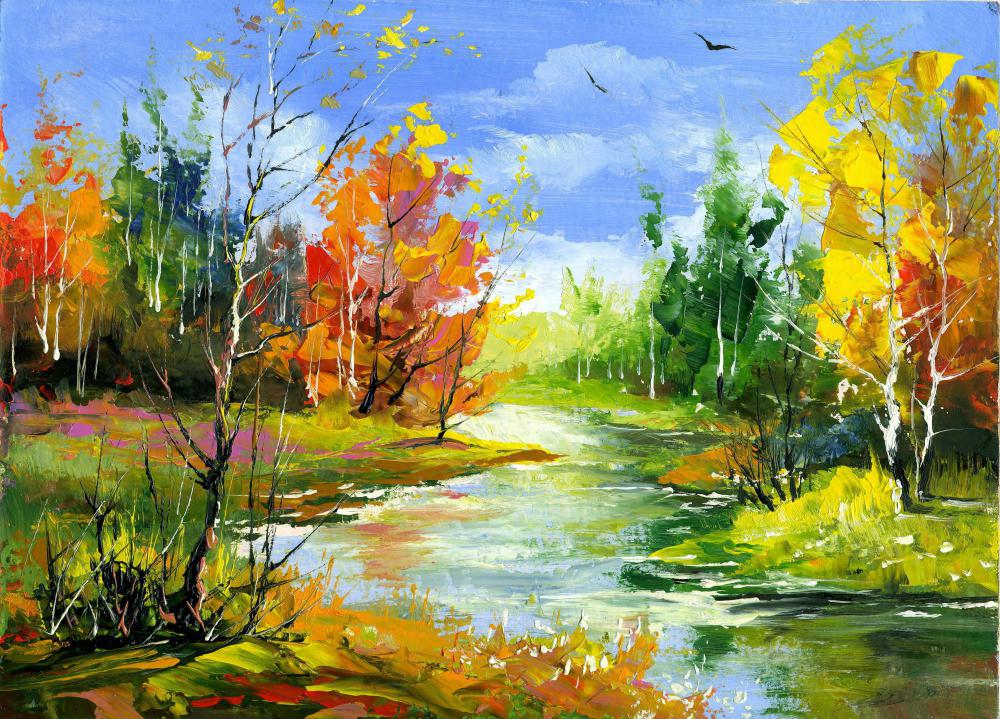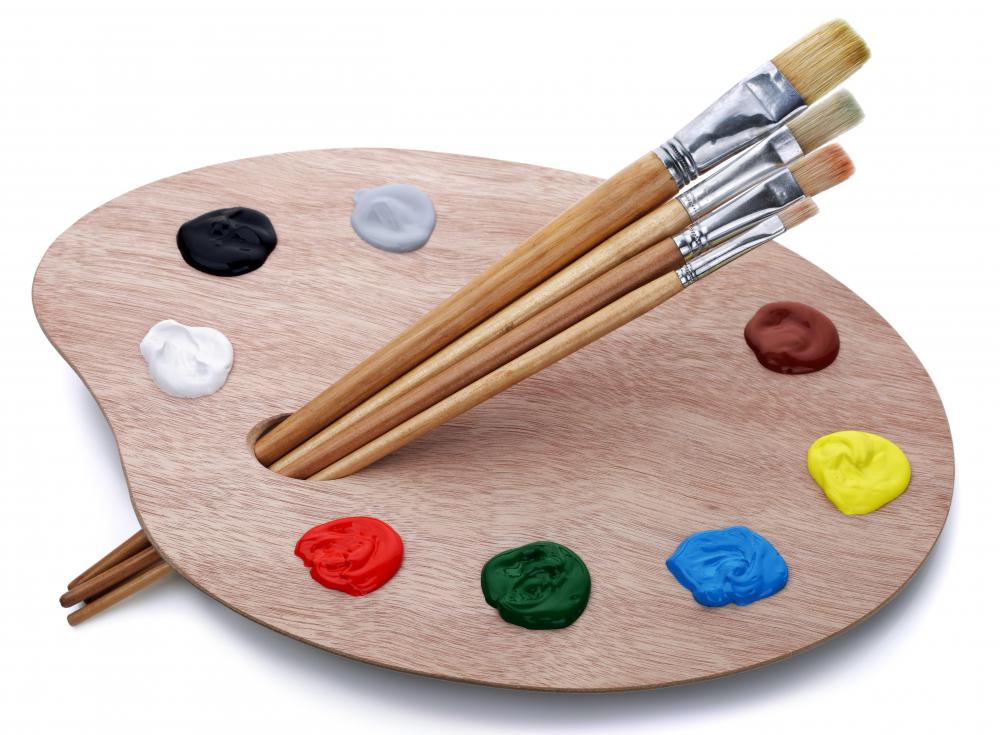At WiseGEEK, we're committed to delivering accurate, trustworthy information. Our expert-authored content is rigorously fact-checked and sourced from credible authorities. Discover how we uphold the highest standards in providing you with reliable knowledge.
What Should I Consider When Buying a Paintbrush for Oil Painting?
If you're interested in oil painting, you may be surprised to learn that choosing the correct brushes can make a significant difference in the quality of your finished artwork. When buying a paintbrush for oil painting, consider the length and size of the brush, the size of the canvas you're painting, and the material of the bristles. Some painters may want to buy a set of brushes to find the ones they like best, or simply to have a variety available to use.
The first thing a novice painter needs to remember when buying a paintbrush is that the length of the brush handle is a good indicator of what type of painting it is best suited for. Long handled brushes are best for oil painting, while brushes with shorter handles are better suited to watercolor painting. The reason for this distinction is that an oil painter often works standing up at an easel, while a watercolor artist typically paints sitting down.

When buying a paintbrush for oil painting, you'll also need to consider what type of paintings you plan to do. For example, a large 3-inch (7.62-cm) flat brush is unnecessary if all of your artwork is done on small canvases. Sable brushes are a necessity for artists who specialize in creating paintings full of small details, however. These brushes are also quite useful for paintings in which you don't want your brush marks to be visible.

For the discriminating artist, the type of material used in product construction is an important factor choosing the best paintbrush for oil painting. Typically, brushes made from stiff hog-hair bristles are best suited for thick oil paint application. If you can afford the expense, consider investing in high quality artist-grade brushes. If you're on a tight budget, however, cheaper hog brushes designed for student painters will produce acceptable results if you remember to replace them on a regular basis.

Although brushes are often sold individually, beginning oil painters often find that it is easiest to purchase a set of brushes for their first projects. This is especially helpful if you're not sure which paintbrushes suit your particular needs. You'll have an assortment of brushes to test as you're perfecting your painting technique. If you want to specialize in a particular area of painting, such as portraits or landscapes, you can even purchase prepackaged sets with the most common types of paintbrushes used for these projects.

When selecting oil painting brushes, you may notice that your favorite art supply store has a large selection of similar looking acrylic paintbrushes. As a general rule, acrylic paintbrushes can also be used for oil painting. In most cases, oil paintbrushes should not be used with acrylic paints, however.
AS FEATURED ON:
AS FEATURED ON:















Discussion Comments
You shouldn't use oil paint brushes with acrylic paint because the water base of the paint makes the natural fibers of oil paint brushes go limp and hard to paint accurately with. Synthetic brushes don't soak up the water in the same way and so stay rigid enough to be controllable!
Why isn't it recommended to use oil paint brushes with acrylic paint?
Post your comments